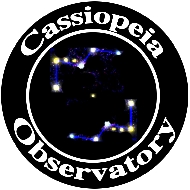More Herschel 400 imaging
Posted: 10 March 2023
Cloudy skies returned on Sunday, 5 March 2023. Tuesday, 7 March, two visitors came to Cassiopeia Observatory to see it. Due to the cloudy sky, we did not view any objects through the telescope. But Venus and Jupiter were visible, along with a pretty sunset. The observatory is in the lower left corner and both planets right of the center in this iPhone 13 Pro Max photo.
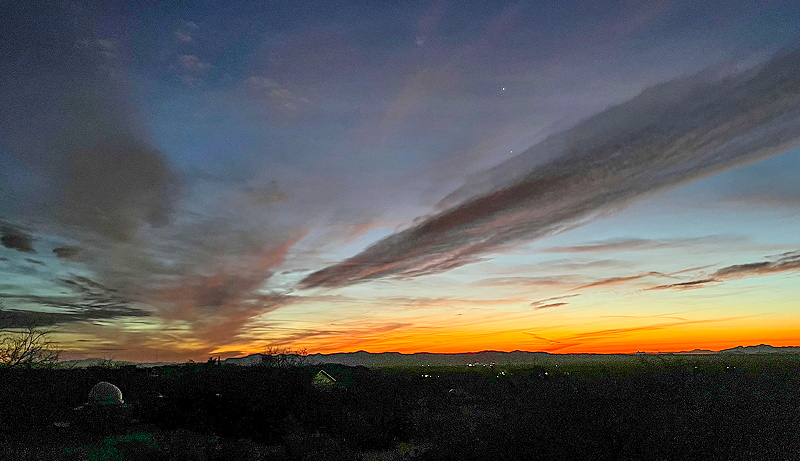
It has been a number of years since I have noted such a large difference in the cloud forecasts for the current day (8 March) between Clear Sky Chart and 7Timer for my location:


Which was more accurate? It was cloudy on Wednesday, so 7Timer was more accurate.
Thursday, 9 March, the sky mostly cleared as sunset approached. Which forecast was more accurate?

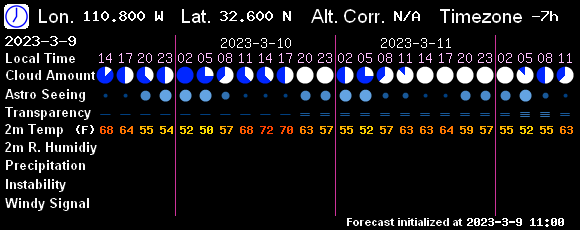
The Clear Sky Chart forecast!
|
Open: Thursday, 9 March 2023, 1819 MST Temperature: 74°F |
Session: 1841 Conditions: Mostly clear |
Equipment:
12" f/8 LX600 w/StarLock
2" 24mm UWA eyepiece
Camera:
iPhone 13 Pro Max
D850 DSLR
1824 MST: LX600 ON, StarLock OFF, High Precision OFF.
Viewed Venus, then Jupiter, 102X.
Slewed to NGC2185 (nebula), not yet visible.
1829 MST: Sunset.
Prepared the D850 DSLR for imaging more Herschel 400 Catalog objects.
1856 MST: Selfie with Venus (on top) and Jupiter (below Venus) and the 12" telescope, taken with the iPhone 13 Pro Max using the Camera app (Night Mode).
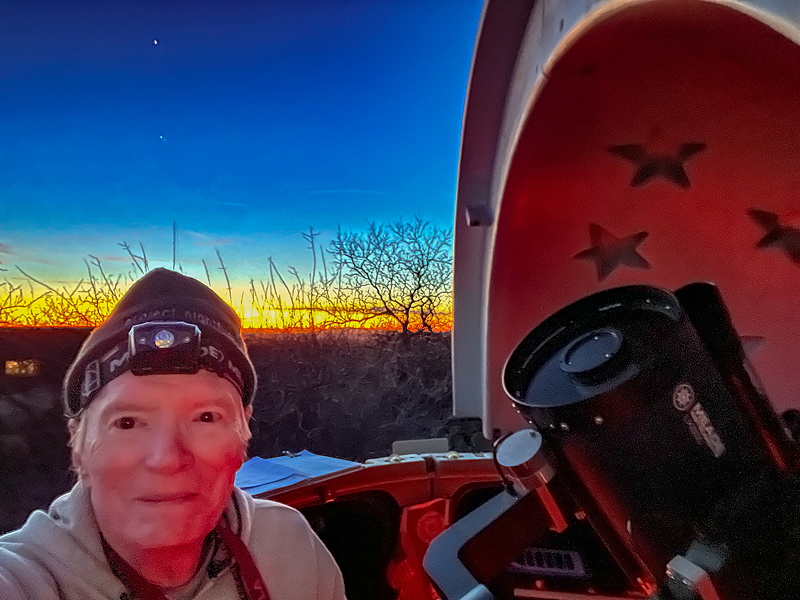
1902 MST: High Precision ON.
1930 MST: NGC2185 (nebula) was now visible, 102X. Needed to use averted vision to see this faint and small nebula.
Mounted the D850 DSLR at prime focus, focused on the star Betelgeuse, locked the 12" primary mirror, and SYNCed the AutoStar on Betelgeuse.
1940 MST: StarLock ON.
Imaged these Herschel 400 objects (ISO 3200, 1 minute exposures except NGC2185 which was a 5 minute exposure).
NGC2024 (Flame Nebula)
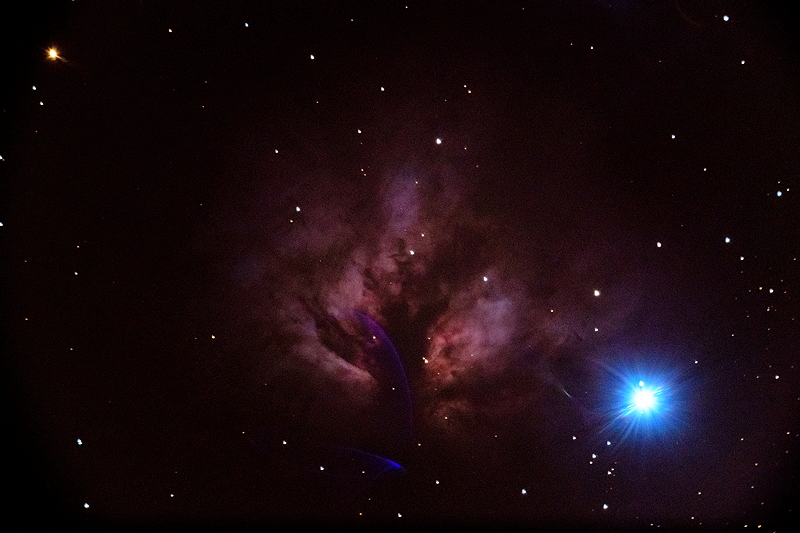
NGC2126 (open cluster)
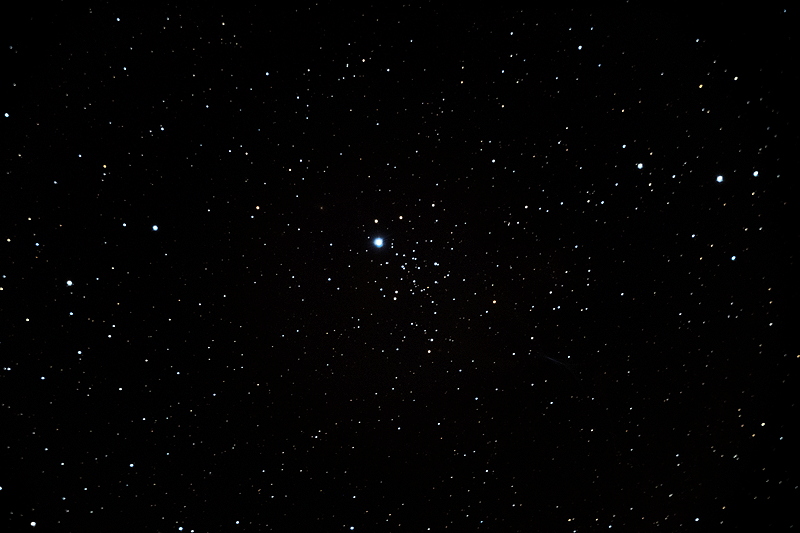
NGC2185 (nebula)
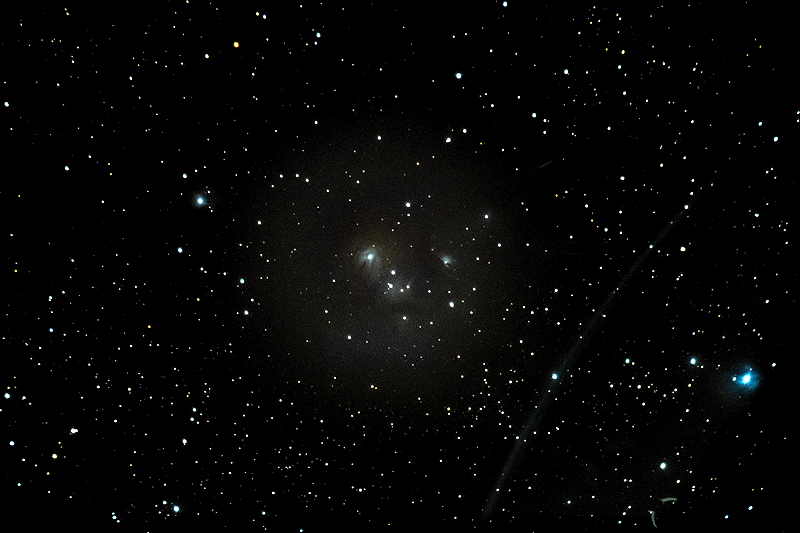
NGC2204 (open cluster)
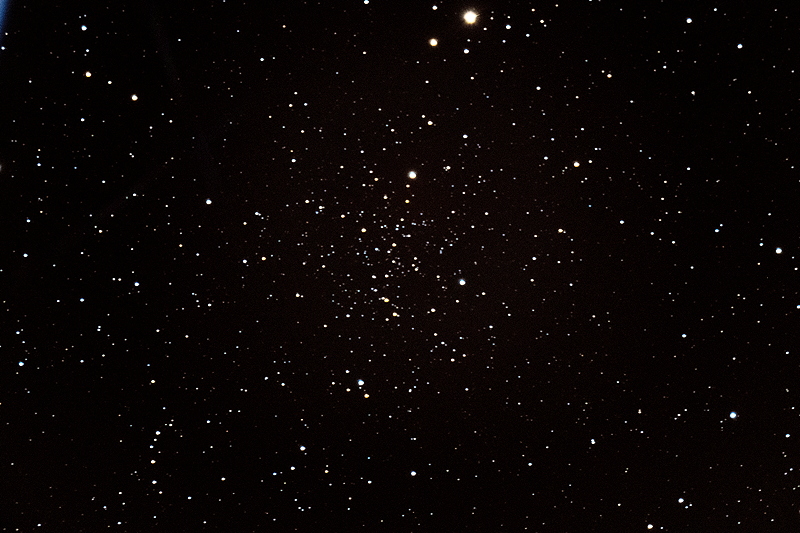
NGC2215 (open cluster)

NGC2232 (open cluster)
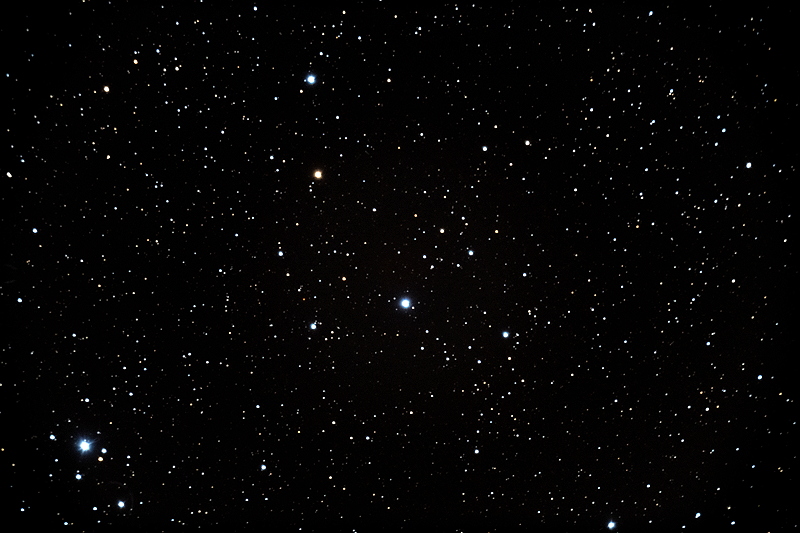
NGC2244 (open cluster)
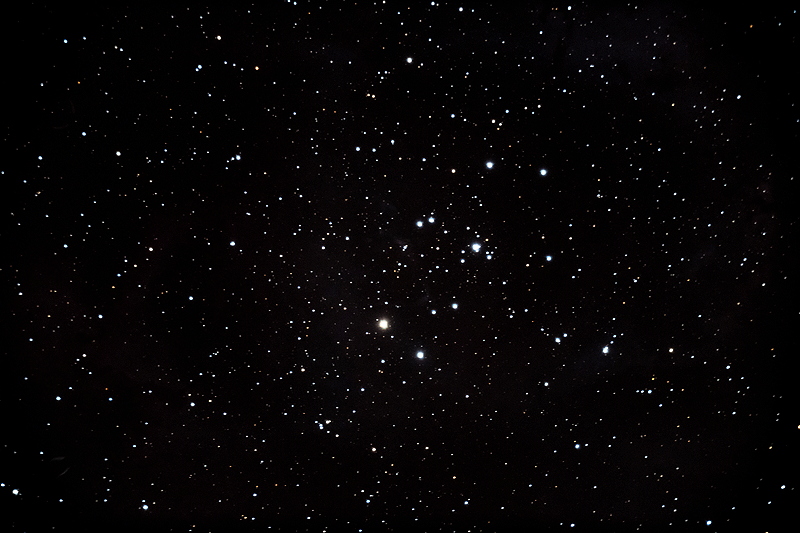
NGC2281 (open cluster)
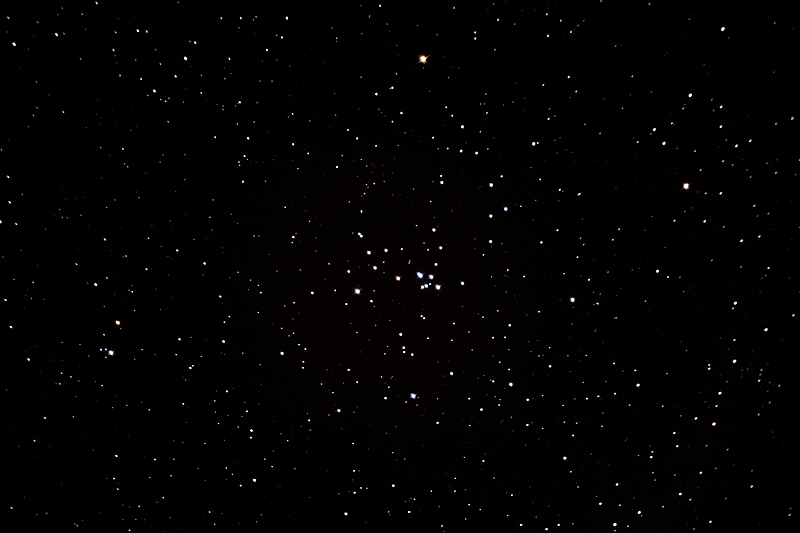
NGC22816 (open cluster)
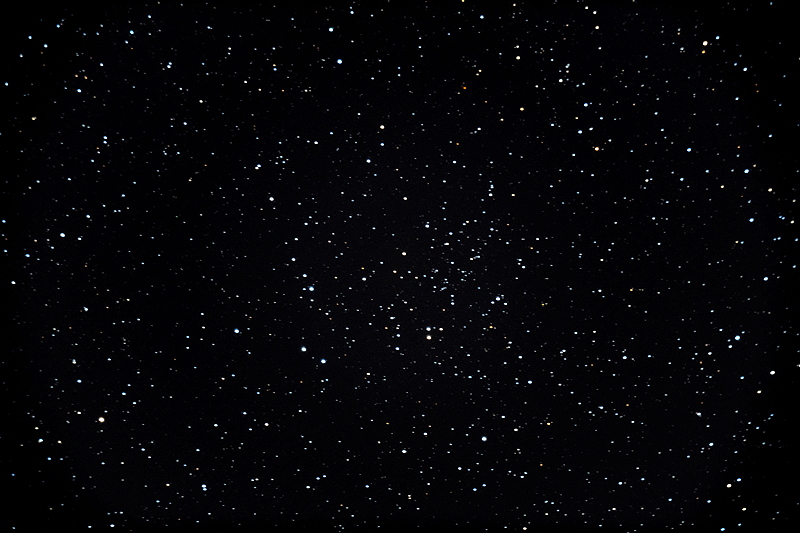
2046 MST: The eastern sky was brightening from the rising waning gibbous Moon and clouds were increasing.
2047 MST: StarLock OFF.
I have now observed 128 Herschel 400 objects and imaged 119 of them.
Viewed M42 (Orion Nebula), 102X.
2056 MST: LX600 OFF.
|
Close: Thursday, 9 March 2023, 2105 MST Temperature: 54°F |
Session Length: 2h 46m Conditions: Partly cloudy |
Comments are welcome using Email. Twitter users can use the button below to tweet this report to their followers. Thanks.
Cassiopeia Observatory Home Page
Copyright ©2023 Michael L. Weasner / mweasner@mac.com. Email Etiquette.
URL = http://www.weasner.com/co/Reports/2023/03/10/index.html
